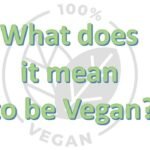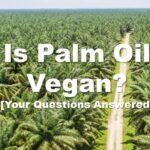Flour is a common ingredient in preparing baked items. New vegans, who love to bake, naturally want to know, “Is flour vegan?” This is a valid question, and the answer is mostly a positive one. We answer the question in detail as well as more of your vegan flour questions in this short article.
If you’re new to the vegan lifestyle, you no doubt have 101 questions about what you can and cannot eat, and what you can and cannot do. In this article, we will take you through vegan flours as well as what to look out for to ensure that the flours you are buying are vegan.
What Is Flour Normally Made Of?
Regular flour is most often sourced from wheat plants.
There are alternative sources to produce flour including almonds, coconuts, tapioca, and oats. This is similar to milk alternatives in the vegan world too.
Talking about wheat, this is a type of cereal wheat seed and is broken down into three parts:
- The bran
- The germ
- The endosperm
The bran is like a guardian that protects the wheat kernel.
The germ is the main growth part of the wheat.
Lastly, the endosperm provides storage of sustenance that the seeds require to flourish.
White flour, for example, is made from only grinding up the contents of the endosperm and not the germ or bran; they’re not wasted though because they can be used in other types of flour, etc.
On the other hand, whole-wheat flour is made after the germ has reached the stability level required. Then the endosperm, germ, and bran are combined to produce flour that’s sold as ‘whole wheat.’
Which Flours Are Vegan?
Close to all flours are considered vegan when they’re derived from plant-based sources. There are a few exceptions, one of which is covered later.
Also, you must be a little wary of what might have been snuck into the list of ingredients too.
Originally, white flour did come under some suspicion from vegans. Similar to sugar, white flour production was suspected of utilizing bone char in the processing phase. However, this has been widely dismissed as untrue or perhaps something that happened many decades ago.
It certainly does not seem to be the case today.
There are many types of vegan flour. Here are a few of them:
Almond flour – Crushed almonds and seen in vegan cooking and are gluten-free as well.
Coconut flour – Coconut flour is a great alternative to traditional flour in baking, especially if you are wanting to lower the number of carbs that you are consuming.
Enriched bleached flour – Bleached flour using gas or a type of peroxide for the coloration change. It is vegan but may not be for everyone. This is something we’ll cover in the next section.
Chickpea Flour – Made from ground chickpeas
Self-rising flour – Flour with baking powder and salt included.
All-purpose flour – A product for many needs, it is vegan-friendly.
Malted-barley flour – Made from barley, this flour is also good for vegans.
Oat Flour – This is another great alternative to the regular flour
Buckwheat Flour – This can be used as an inventive alternative to regular flour.
There are 100’s of amazing vegan recipes out there using these flours, but why not check out our how-to guide for making the perfect vegan cake?
It only requires basic ingredients that you probably already have kicking about in your cupboard.
What Ingredients to Look Out for In Non-Vegan Flour?
When thinking carefully about ingredients, there are two aspects to this:
- Plant-based or Nut-based
Essentially, any flour product needs to be sourced from a plant to be vegan. For the most part, that’s true of virtually any flour product even when it’s not specially labeled as vegan (or vegetarian for that matter).
Almonds are used to make almond flour. Therefore, as long as other ingredients in the flour weren’t from animal sources or animal byproducts, we’re all good! It is always sensible to look at the list of ingredients to check it, rather than just assume.
On the plus side, if you can find a great organic flour, then it’ll likely be both higher quality and vegan too. A win-win!
- Environmentally friendly or Meets Your Requirements
The second aspect of ingredients for non-vegan flour is whether either the ingredients or how the flour was produced meets your requirements?
What do we mean by that?
For example, enriched bleached flour is flour that’s been treated to achieve a certain color and consistency.
Typically, but not always, this includes the use of chlorine gas and some benzoyl peroxide chemical too. These can pose a risk to workers and if they escape the factory, could be damaging to the environment.
Therefore, whilst enriched bleached flour is vegan, it may not meet your other standards if those factors are also important to you.
Which Flours Are Not Vegan?
For flour to be vegan, it needs to be sourced from plants. And to not have added ingredients from animal sources. Animal byproducts included are also a no-no too.
Some flours do land squarely in this category.
One that does come to mind is cricket flour. Yes, really… This type of bug-based protein is a high source of protein and antioxidants. They’re sold to non-vegans who have no aversion to the idea.
It is also worth being a little suspect of gluten-free flour too. While producing gluten-free flour is likely to be vegan-friendly, some flours sold under this labeling for baking cakes and the like often have other ingredients included. Sometimes, these additions whilst being gluten-free aren’t going to meet the vegan standard.

